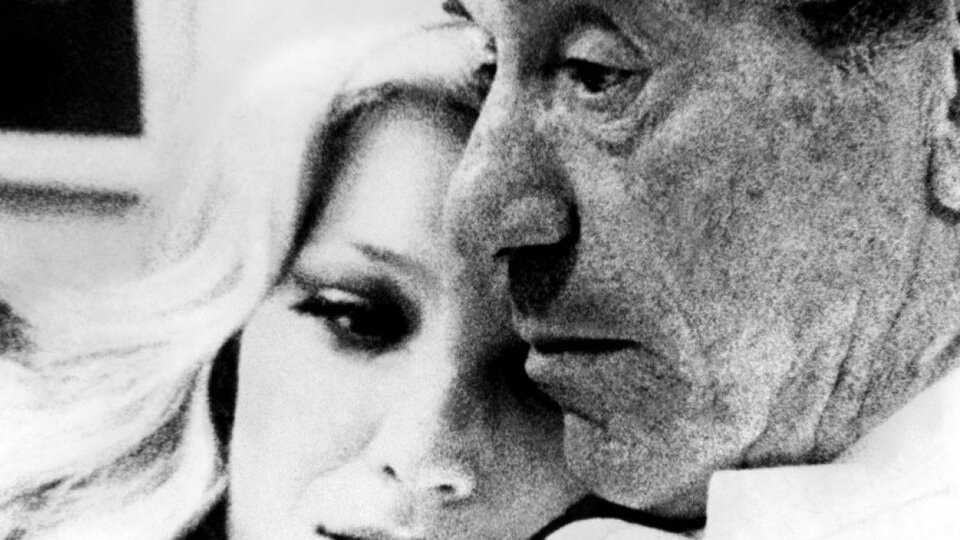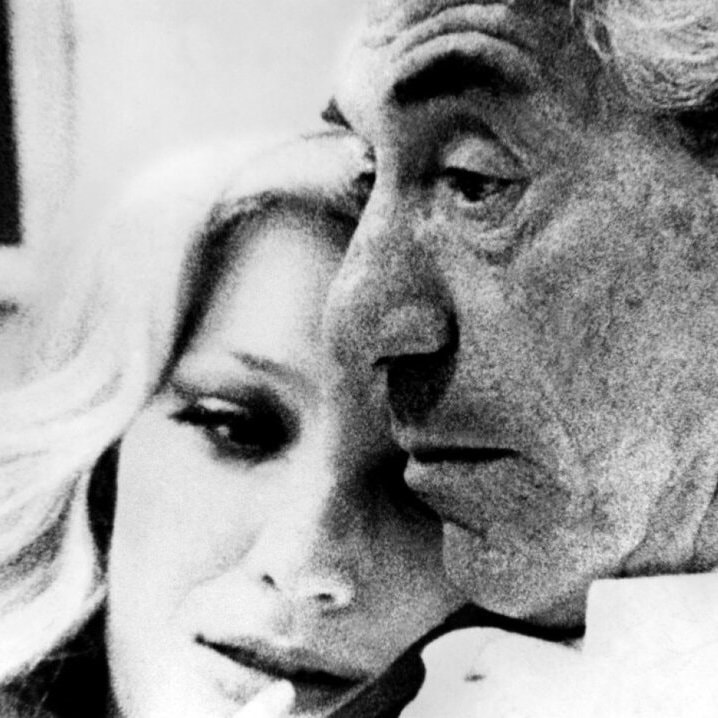The collapse of a fourteen-year marriage in a seminal American. The movie will be screened on 35mm film from the collection of Gosfilmofond.
Unhappy in their marriage but painfully attached to each other, businessman Richard and housewife Maria both start seeing younger people on the side (prostitute Jeannie and womanizer Chet) yet cannot break up. The fourth feature by John Cassavetes (and his first independent film in ten years) about a love rectangle involving the Sinatra generation and the lost youth of the 1960s brought him an Oscar for the best screenplay and reconfirmed his status as one of the most original voices in American film.
Balancing between studio acting and personal directing projects throughout his career, Cassavetes used his earnings as an actor in five Hollywood productions, including The Dirty Dozen (1967) and Rosemary's Baby (1968), to produce his first completely independent film after the revolutionary Shadows (1958). Shot over six months in 1965 and largely in his own house, the film was edited by Cassavetes over the three years that followed. The first six-hour cut is today available only in the form of a script. For the premiere in Toronto, Cassavetes produced a three-hour version, and the cinema release was cut down to 130 minutes.
Despite the film’s purposefully unpolished black-and-white aesthetics clearly borrowed from the French New Wave, unlike Godard or Truffaut, Cassavetes was not inspired by film theory or philosophy (If famous directors are mentioned at all, it is in a mocking way: "There's a Bergman film in the neighborhood." "I don't feel like getting depressed tonight.") One of the key film historians who writes on Cassavetes, Ray Carney argues that his films are rooted in the American pragmatism, which prioritizes action over thought. Cassavetes preferred manic energy to intellectual exercises, and this energy fuels his unkempt, deeply empathic films.
An actor himself and committed to eradicating clichés taught by American method acting, Cassavetes looked for unpleasant, difficult, and sometimes downright ugly emotions in the actors and their interactions. As the name of the film hints, in Faces, the camera “cuts into” the actors—the pitted cheeks of John Marley, the puffy eyes of Gena Rowlands who’s been crying—not merely disrespecting but insulting Hollywood conventions. Apart from the stereotypes and legends around the making of the film, it did have a detailed script, although Cassavetes always left space for improvisation.
The uneven, chilly, and captivating movie brought John Marley a Volpi Cup for Best Actor at the Venice Film Festival; Seymour Cassel the Best Supporting Actor Award of the National Society of Film Critics Awards and the former secretary Lynn Carlin, for whom it was her acting debut, an Oscar nomination. In addition to that, Faces marked a new collaboration between Cassavetes and his wife Gena Rowlands, who starred in eight of his movies.
The importance that Cassavetes attached to creating a space for experimentation and his belief in film as a collective production (he refused to explain the characters’ motivations to the actors) remain relevant today and continue to inspire cinematographers in the future.
The film will be screened in English with Russian subtitles.
Faces
Director: John Cassavetes
USA, 1968. 130 min. 18+

